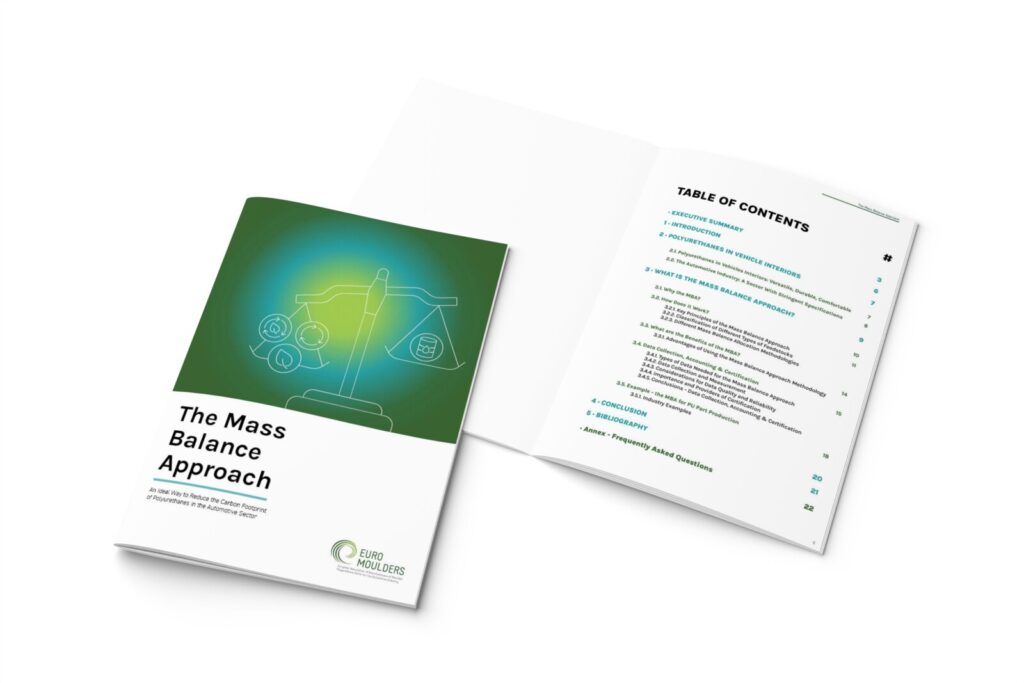On 6 February 2024, EURO-MOULDERS – European Association of Manufacturers of Moulded Polyurethane Parts for the Automotive Industry – has published a brochure ‘The Mass Balance Approach – An Ideal Way to Reduce the Carbon Footprint of Polyurethanes in the Automotive Sector’.
The document is aimed at explaining why chemicals introduced via the mass balance approach are the ideal way to integrate more sustainable content (bio-based, bio-circular, or recycled) into polyurethanes for vehicle interiors. Relatively general in nature and ‘lighter’ in style, it is suited for a non-specialist audience, but can also be relevant for environmental professionals, policy makers and regulators. It is a publicly available document, available to download by clicking here or on the image above.
SHORT EXCERPT FROM THE EXECUTIVE SUMMARY
One of the ways to make the automotive industry more sustainable is by transitioning away from fossil-based feedstocks not only as fuel, but also as raw materials in the production of plastics for cars, and by using more sustainable feedstocks, with allocated bio-based, bio-circular, and/or recycled (circular) content. In order to do that in a transparent, verifiable and third-party certifiable manner, chemicals producers are using the mass balance approach (MBA).
The MBA is essentially a process approach that allows chemical producers to track how much of alternative (non-fossil) feedstock is used in the production of circular chemicals. This is being done by following the mass flow principles, quantifying inputs and outputs at each stage of the production process and tracking the use of raw materials throughout the value chain. This way, MBA audits enable third-party verification of the process.
The MBA can therefore be a complementary solution to existing, segregated, recycling technologies – notably mechanical recycling and depolymerisation (waste-to-monomer) – in order to incorporate more sustainable raw materials into final products, whilst significantly reducing their carbon footprint. The major advantage of mass balance is that it allows leveraging alternative feedstocks in already existing infrastructure, together with the fossil-sourced feedstock.
As different feedstocks are impossible to physically separate once co-fed in large industrial installations, the MBA is needed to calculate and verify the amount of sustainable content allocated to products. Another benefit of using chemicals introduced via the MBA is that they are of virgin-grade quality and thus do not require OEMs to consider adaptations to their specifications or to consider new qualification of parts to allow for recycled content. This is why this approach is well suited for the automotive supply chain, which is among the supply chains with the most stringent requirements for materials and parts in general, including for polyurethanes.


